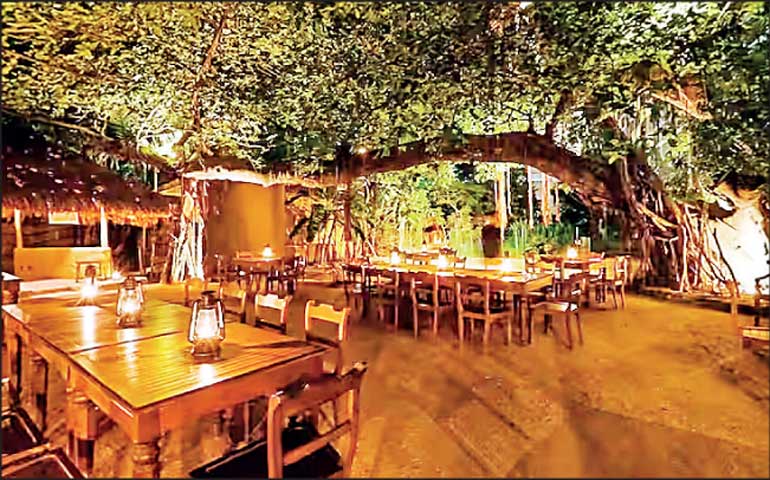Sunday Feb 22, 2026
Sunday Feb 22, 2026
Saturday, 25 June 2022 01:08 - - {{hitsCtrl.values.hits}}

Nuga (Banyan tree) at Cinnamon Grand
Dharshana Gallage is a 48-year-old hotelier with experience in world tourism in scores of countries around the world. Currently the General Manager of the Cinnamon Grand hotel, he has returned to Sri Lanka this year, leaving an overseas career in hospitality, with a firm determination to help restore Sri Lanka’s economic health through the route of tourism.
Well-versed in the economic rise and fall of different countries, he cites Greece as one example where the economic slump was restored mainly through tourism.
He is well-aware that tourism does not mean luxury buildings alone and that it is the people-based element that gives the vitality in influencing fellow human beings to visit a destination.
The Cinnamon Grand, which houses international cricket teams, continues to be vibrant during current times and is planning on several people-oriented activities that will promote indigenous medicine and cuisine, he states.
The Jaffna cuisine dinner series that takes place every night is to be followed with other cuisine from diverse parts of the country and especially promoting herbal foods, he states.
He points out that the hotel prioritises the nurturing of indigenous plants, and that its premises houses an ancient Nuga tree that was a key landmark when the colonial city mapping was carried out during the time of British occupation.
“We hope to work consistently to boost the perseverance of the people of Sri Lanka who are striving to come out of this economic crisis, doing the best they can to individually contribute to the economy of the country. We especially want to support the traditional artisans and those who work in areas of traditional health systems,” he states.
The hotel plans to enhance the replication of the traditional village life experience within its location at the Nuga Gama restaurant and the renovation is to be completed in about three months. This area is to be used to educate both locals and non-locals on diverse aspects of traditional knowledge, he states.
He says more positive stories on Sri Lanka are needed at this time to show that the country is not drowning in pessimism.
“We all saw the packed stadiums at the cricket matches played here. We saw people striving at happiness. It would have helped to tell the world that whatever the difficulties faced, that hope exists,” he states.
He says the hotel industry continues to have hope in the boosting of both local and domestic tourism and cites examples of new hotels being built and diverse promotional strategies being developed.
“Sri Lanka is a country which has innumerable varieties of herbal food and vegetables. We need to increase our knowledge of these. I can never believe that we will starve in Sri Lanka if we have adequate knowledge of the range of foods nature has made available to us,” he states acknowledging that we may sometimes think that these are wild plants because we are so used to a few standard import-centric foods.
“With our patrons such as Christy Richards who motivated us to start the Sri Lankan cuisine series every Saturday beginning with Jaffna food, we will work towards increasing the focus of Lankan heritage foods,” he states.
Featuring the narratives of farmers on working positively with mother earth and broadening the scope of food security are part of the people narrative series the hotel is conceptualising, he states.